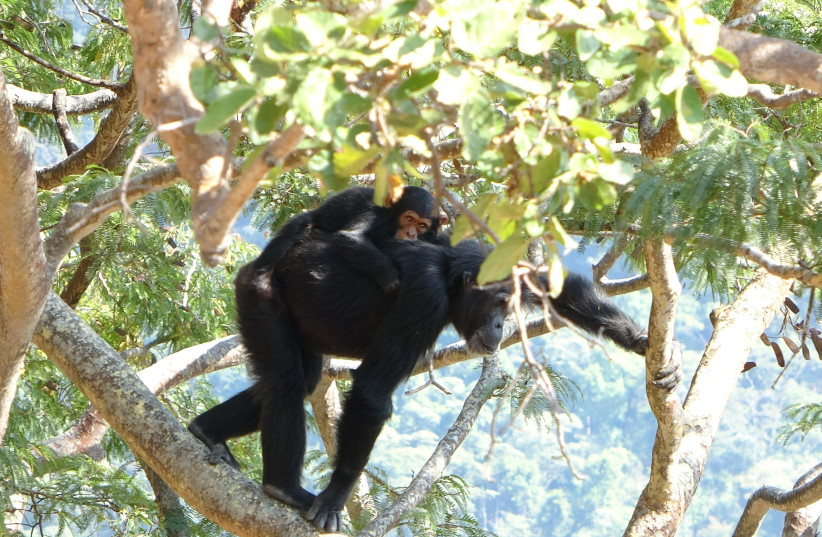Raising teenagers is like living with chimps, and it's scientifically proven

In a current study, researchers found that adolescent chimpanzees are very similar to human teenagers, and even manage to be nicer than them.
We all know that raising teens isn't easy, but a report from a new study by the American Psychological Association published in the Journal of Experimental Psychology is quite surprising. Research showed that young chimps may not be so different from the teens living in our homes – though our teens may be more impulsive.
Researchers worked with 40 wild-born chimps at a sanctuary in the Republic of Congo, playing games that tested the attitude of the young animals toward risk-taking and impulsivity.
Lead study author Dr. Alexandra Rosati, professor of psychology and anthropology at the University of Michigan, told CNN that human adolescents are dealing with a changing body and mind and tend to be more impulsive, risk-seeking, and less able to regulate emotions than adults. She added that chimps face many similar challenges as they develop from a young age into adolescence.
Hormonal changes, aggression and competition
The study described chimps' puberty as a period from about age 8 to 15 in a 50-year lifespan. Like young humans, they experience rapid hormonal changes, new social relationships, increased aggression, and competition for social status.
Dr. Aaron Sandel, assistant professor of anthropology at the University of Texas at Austin, who wasn't involved in the present study, said that studies ignore and don't focus on adolescent chimps compared to infants and adults. He stated that until now, there was a large gap in scientific literature on adolescent chimps.
The new study found that adolescent chimps are more likely to take risks in their games than adults, yet equally they'll wait to be rewarded. Human teens, though, are more likely to receive a smaller but faster reward, the study noted.
The chimps were tested in two different ways with food as a reward. After researchers discovered that chimps really dislike cucumbers, somewhat like peanuts, and love bananas, they took a small bet.
Both adult and young chimpanzees were asked to choose between two containers: One that always contained peanuts, and another that contained either a cucumber or a banana. The adolescent chimps were more likely to take a risk and go for the cucumber or banana container than the adults. Both groups showed similar negative reactions, like moaning, whining, screaming and banging on the table when they got a cucumber.
The second test is similar to a known test given to human children. The chimps had the option of receiving one slice of banana immediately or waiting a minute and then receiving three slices. Both adults and adolescents waited for the three slices at a similar rate, but the young had more tantrums while waiting a minute, the study says.
The study also showed that human teens were more likely to take the small treat more immediately, according to the study.
Researchers concluded that previous work indicates that chimpanzees are quite patient compared to other animals, and this study shows that their ability to delay gratification is already advanced at a fairly young age, unlike humans.
Jerusalem Post Store
`; document.getElementById("linkPremium").innerHTML = cont; var divWithLink = document.getElementById("premium-link"); if (divWithLink !== null && divWithLink !== 'undefined') { divWithLink.style.border = "solid 1px #cb0f3e"; divWithLink.style.textAlign = "center"; divWithLink.style.marginBottom = "15px"; divWithLink.style.marginTop = "15px"; divWithLink.style.width = "100%"; divWithLink.style.backgroundColor = "#122952"; divWithLink.style.color = "#ffffff"; divWithLink.style.lineHeight = "1.5"; } } (function (v, i) { });

